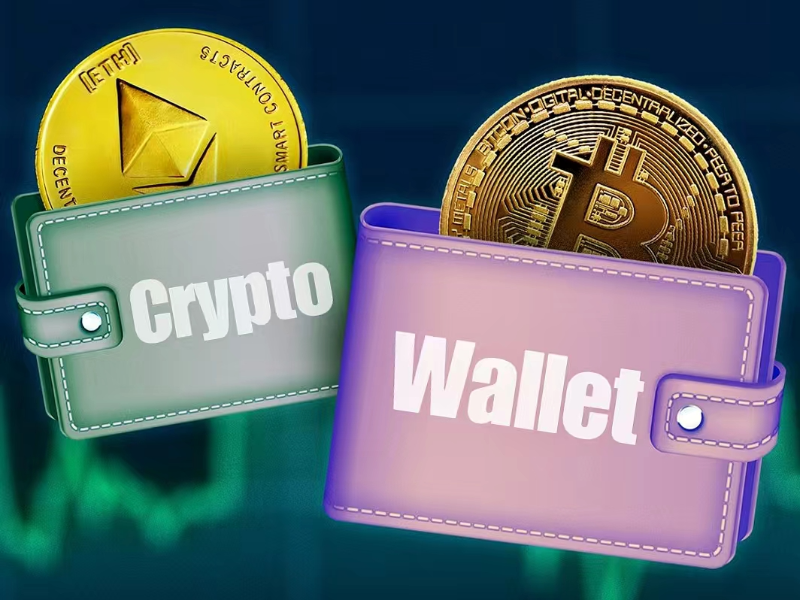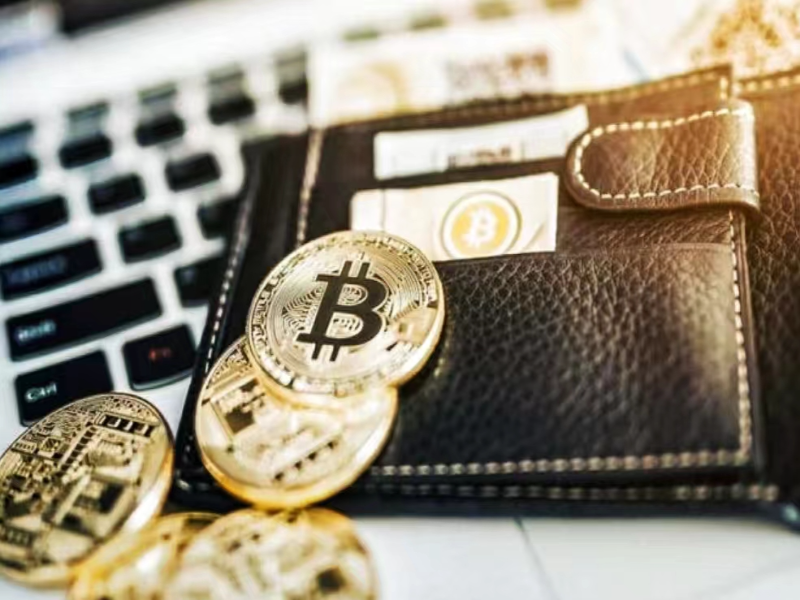- Safeguarding your cryptocurrency involves choosing a decentralized wallet for full control over your private key and mnemonic. Proper backup, avoiding sharing sensitive information, and transferring assets promptly in case of a security breach are crucial steps to protect your digital assets.
- Choose trusted mainstream cryptocurrency wallets and avoid downloading wallets from unknown sources to mitigate the risk of theft or loss. Always prioritize official channels for downloads and exercise caution when navigating websites to ensure security.
- Select a hardware wallet to store large assets offline, utilize a mix of hot and cold wallets, verify addresses diligently, and remain cautious of unauthorized interactions and social media scams.
In the cryptocurrency space, securing crypto wallets is critical. Crypto wallets are key components for storing digital assets, and their security is directly related to the protection of users’ assets.
Also read: What is a wallet address in crypto?
Secure wallet private keys and mnemonics
Choosing a decentralised wallet ensures that the private key and mnemonic are completely in the hands of the user, and the platform will not send the private key or mnemonic to external servers.
After obtaining the private key and mnemonic word, you should pay attention to its backup and preservation, do not use the network equipment to save or transmit the private key, and do not take screenshots or photos to save the private key, in order to prevent hackers from stealing it, and avoid losing or damaging the physical media backup.
For example, Ouyi Web3 wallet now supports third-party iCloud and Google Drive backup memos, and encrypted backups can be done by setting a password to avoid the problem of lost and unrecoverable private key memos.
Don’t use the same set of mnemonic words in multiple wallets, which is consistent with the reasoning of diversified investment. By spreading the funds and on-chain behaviours in different wallet addresses and wallet applications, the risk can be effectively dispersed, and in order to facilitate the operation of investment transactions and other operations, you can place the main interactive behaviours in the mainstream wallet products.
Keep your private key, mnemonic and other information in a safe place, do not disclose your private key, mnemonic, password, or Keystore file to anyone, and the official staff of the wallet will not ask you for mnemonic, private key and other information in any form.
Do not import your private key to unknown third-party websites and do not download and use wallet applications from unknown sources provided by third parties, as these actions may inadvertently leak your private key.
Once you have leaked your private key, mnemonic, Keystore and password, please transfer your assets to another wallet immediately and do not continue to use the wallet where you have leaked your private key, so as to reduce the risk of subsequent theft and loss of your assets.
Also read: What is a wallet address in crypto?
Use regular and mainstream crypto wallet products
Use regular and mainstream crypto wallets products, such as OKX, which is a decentralised wallet app for iOS and Android users. It supports dozens of blockchain standards and aggregates data from over 200 DeFi (decentralised finance) platforms. This allows OKX users to exchange tokens for market-leading rates.
There’s also coinbase wallet powered by coinbase exchange, a decentralised wallet compatible with iOS and Android devices. It supports thousands of cryptocurrencies and NFTs (non-fungible tokens) from multiple blockchain networks, and when using a coinbase wallet, users have full control over their private keys.
Don’t download or use wallet apps provided by third parties from unknown sources. It is very dangerous to input private keys into the wallet without knowing whether it is regular or not, and if it is a malicious wallet, the assets in the wallet will be at great risk of being stolen.
Beware of fake crypto wallets, don’t download wallet apps by searching or using unknown links, if you download fake apps with Trojan virus you will also suffer losses.
The correct approach is to enter the official website and download it through official channels, or download the wallet from a regular app shop. Before downloading, you should also be careful to check the URL (uniform resource locator) of the website and avoid carrying out related operations at fake websites with similar URLs.

Maintain good crypto wallet habits
If you use a hardware wallet to keep large amounts of assets, the hardware wallet is a cold wallet, and the private key does not touch the network to ensure the maximum security of the wallet assets, and not be stolen by hackers.
In practice, you can create a hot wallet to interact with the chain and use a combination of hot and cold wallets to ensure wallet security and convenient operation.
Double-check the address when transferring money. In order to prevent the risk of asset loss caused by incidents such as hackers tampering with the address of the coin charging in Telegram, or hackers disguising airdrops with similar addresses at the beginning and the end, it is necessary to double-check the address to see if it is correct when transferring money.
Be cautious of suspicious authorisation interactions, do not easily authorise and interact with unknown contracts or decentralised applications, and before performing any authorisation or interaction, you need to confirm whether the URL or contract is the correct address, and do not easily perform authorisation interactions.
Regular authorisation management of your crypto wallet and good authorisation management habits are key to improving the health of your wallet. For unfamiliar sites that have been authorised in the wallet, authorisation should be cancelled promptly, while interactive applications or websites may be hacked at any time, cancelling authorisation on time after interaction can effectively reduce the possibility of being attacked.
Setting wallet authorisation limits is also an important way to ensure security, as unrestricted contract authorisation allows hackers to take advantage of loopholes and steal assets.
Be wary of any airdrops of tokens or NFTs, be alert to any inexplicable airdrops, do not easily accept the temptation to bid, and do not easily go to the relevant website to authorise transactions.
Be wary of unfamiliar private chats on social media platforms. Once you encounter people claiming to be “official” and guiding you to authorisation in the name of activities, or if you receive information recommending crypto wallets that contain “high-yield” investment products, do not do anything easily. Do not easily do anything such as “wallet authorisation”, “provision of private keys”, or “clicking on unknown links” to avoid this type of phishing scam.

